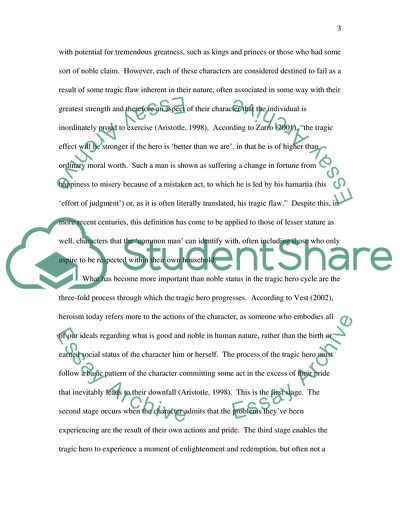Cite this document
(Discovering the Tragic Hero: Ancient and Modern Essay, n.d.)
Discovering the Tragic Hero: Ancient and Modern Essay. https://studentshare.org/literature/1733248-in-what-ways-does-shakespeares-conception-of-tragedy-differ-from-that-of-the-ancient-greeks-contrast-hamlet-as-a-tragedy-with-oedipus-rex-the-king
Discovering the Tragic Hero: Ancient and Modern Essay. https://studentshare.org/literature/1733248-in-what-ways-does-shakespeares-conception-of-tragedy-differ-from-that-of-the-ancient-greeks-contrast-hamlet-as-a-tragedy-with-oedipus-rex-the-king
(Discovering the Tragic Hero: Ancient and Modern Essay)
Discovering the Tragic Hero: Ancient and Modern Essay. https://studentshare.org/literature/1733248-in-what-ways-does-shakespeares-conception-of-tragedy-differ-from-that-of-the-ancient-greeks-contrast-hamlet-as-a-tragedy-with-oedipus-rex-the-king.
Discovering the Tragic Hero: Ancient and Modern Essay. https://studentshare.org/literature/1733248-in-what-ways-does-shakespeares-conception-of-tragedy-differ-from-that-of-the-ancient-greeks-contrast-hamlet-as-a-tragedy-with-oedipus-rex-the-king.
“Discovering the Tragic Hero: Ancient and Modern Essay”. https://studentshare.org/literature/1733248-in-what-ways-does-shakespeares-conception-of-tragedy-differ-from-that-of-the-ancient-greeks-contrast-hamlet-as-a-tragedy-with-oedipus-rex-the-king.


